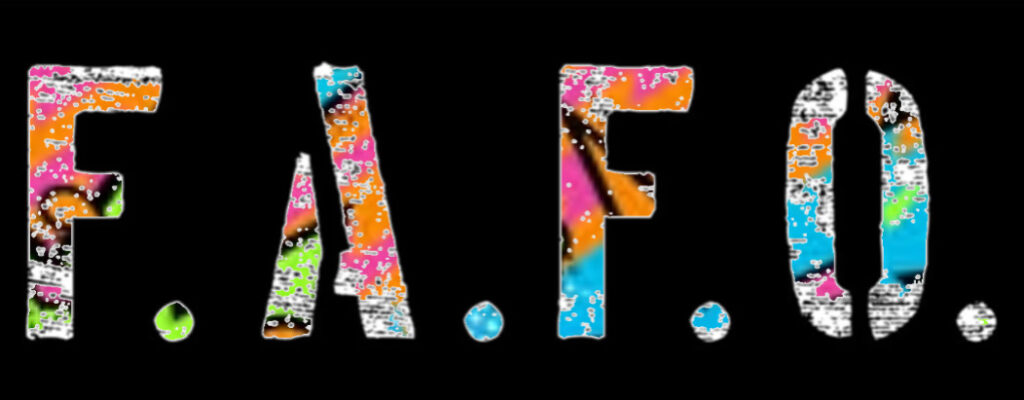Words, it might seem, lose power as the sentences in which they appear diminish in length. “Go fuck yourself” carries more weight than the mere utterance of the stand-alone “fuck,” unless the latter usage comes in the wake of smashing one’s thumb with a hammer or dropping one’s wedding ring into the garbage disposal.
Both usages, I would argue, gain more power when offered as “Go f**k yourself” or the simple “f**k.” The reason for that is that while trying to protect the reader from such words, we make them consider the spelling and give it more attention than it deserves. With the right letters replacing the asterisks, the word floats by with nary a thought.
Norman Mailer struggled with the asterisk issue as early as 1948. He used the F-word liberally in The Naked and the Dead, but at his publisher’s insistence he changed the spelling to “fug.” When Dorothy Parker was introduced to Mailer, she said, “So you’re the young man who can’t spell fuck.”
I’m expecting a pair of sunglasses any day now. I’m worried about the order in that the company has identified my home address as being S***TH***S***. There’s no part of my address that merits any coding or censuring, so the reason for doing so to my address remains a mystery.
There are, however, people who scour the library shelves in search of books with any number of “dirty” words that might warp the unsuspecting minds of innocents.
Asterisks by themselves don’t challenge the reader as much as the phrase “expletive deleted.” In 1966, the comedian Lenny Bruce was arrested for identifying nine words as expletives, two more (“ass,” “balls”) than George Carlin, who famously spoke of the seven words you can never say on television or radio. Today, Carlin’s list holds the line at six, what with “piss” now being generally accepted usage.
“Bullshit” didn’t seem to move Bruce or Carlin. And yet, it wasn’t that long ago that Bill Barr, an attorney who has spent much of the Trump administration as a part of it, serving two stints as Attorney General. His use of the word (“bullshit”), was to describe something-or-other that Trump either said or did. It also paved the way for MSNBC anchors to start peppering their stories with the word. Most of them snicker after saying it, much like a child saying “poo-poo”; one doesn’t use it—or any other such word—because, well, it is television.
Sadly, nobody bothered to tell said anchor that cable is not governed by any authority, let alone the Federal Communications Commission. That is why so many comics appear on cable networks and why, when Robin Williams was approached to co-host Comic Relief with Billy Crystal and Whoopi Goldberg, he insisted it be on a cable network so that he could say “penis,” which made neither Bruce’s nor Carlin’s lists. It’s difficult to read the minds of comics, especially when it comes to slang uses of body parts.
Richard Pryor was one of the greatest comics to have ever lived. He couldn’t utter a sentence without using a handful of expletives. Bill Cosby, another of the comedic greats, never resorted to what we call “blue” language. The same could be said of Bob Newhart, whose best friend was the blue-streaking Don Rickles. Don’t say I didn’t warn you about how comics think.
Just yesterday I finished reading Erik Larson’s The Demon of Unrest. He’s one of my favorite historians and this volume was 500 pages detailing the historical events between the election of Abraham Lincoln and the start of the Civil War. It is a moving account that takes the reader to that time of Lincoln’s most pressing issue of slavery.
There are missteps in Larson’s writing of the story: n****r appears as does Black. “Nigger” is a horrible word that should only be used in referencing that time when the word was commonplace; Black would not become used until a quarter of the way into the twenty-first century. If accuracy counts in the telling of history, then the words become important and powerful.
I used to cringe when I would hear my father use the word “colored.” I came to understand that it was merely a word belonging to his generation. Many Blacks of his age used the same word.
The Adventures of Huckleberry Finn is set along the Mississippi River in pre-Civil War times. In it, Twain used the N-word 219 times. To some people, the word gets in the way of the story’s powerful message against slavery; to others, Twain is simply capturing the way people talked back then. I wonder about those who conduct tallies instead of reading the book for content that challenged authority, poked fun at religion and was accused of leading children astray.
“There’s no real consistent standard,” noted George Carlin. “These words have no power. We give them this power by refusing to be free and easy with them. We give them great power over us. They really, in themselves, have no power. It’s the thrust of the sentence that makes them either good or bad.”
Illustration by Courtney A. Liska
Fried Catfish
The flavor of Southern cuisine lies in fried catfish. This is simple dish that should be accompanied by Cole slaw and hush puppies.
1 to 2 pounds catfish fillets
Buttermilk for soaking
3 eggs
1 cup all-purpose flour or cornmeal
1 tsp. salt
1/2 tsp. pepper
1/4 tsp. garlic powder
3/4 cup oil
Place fillets in a pan and cover with milk or buttermilk. Let soak for about an hour in the refrigerator. In a large bowl mix flour, salt, pepper, and garlic powder. In a smaller bowl whisk eggs until smooth.
Remove fish from milk and discard the milk. Dip fillets in egg and then in flour mixture. Make sure you have about 1/2-inch of oil in a skillet. Fry on each side until golden brown; about 6 or 7 minutes.
